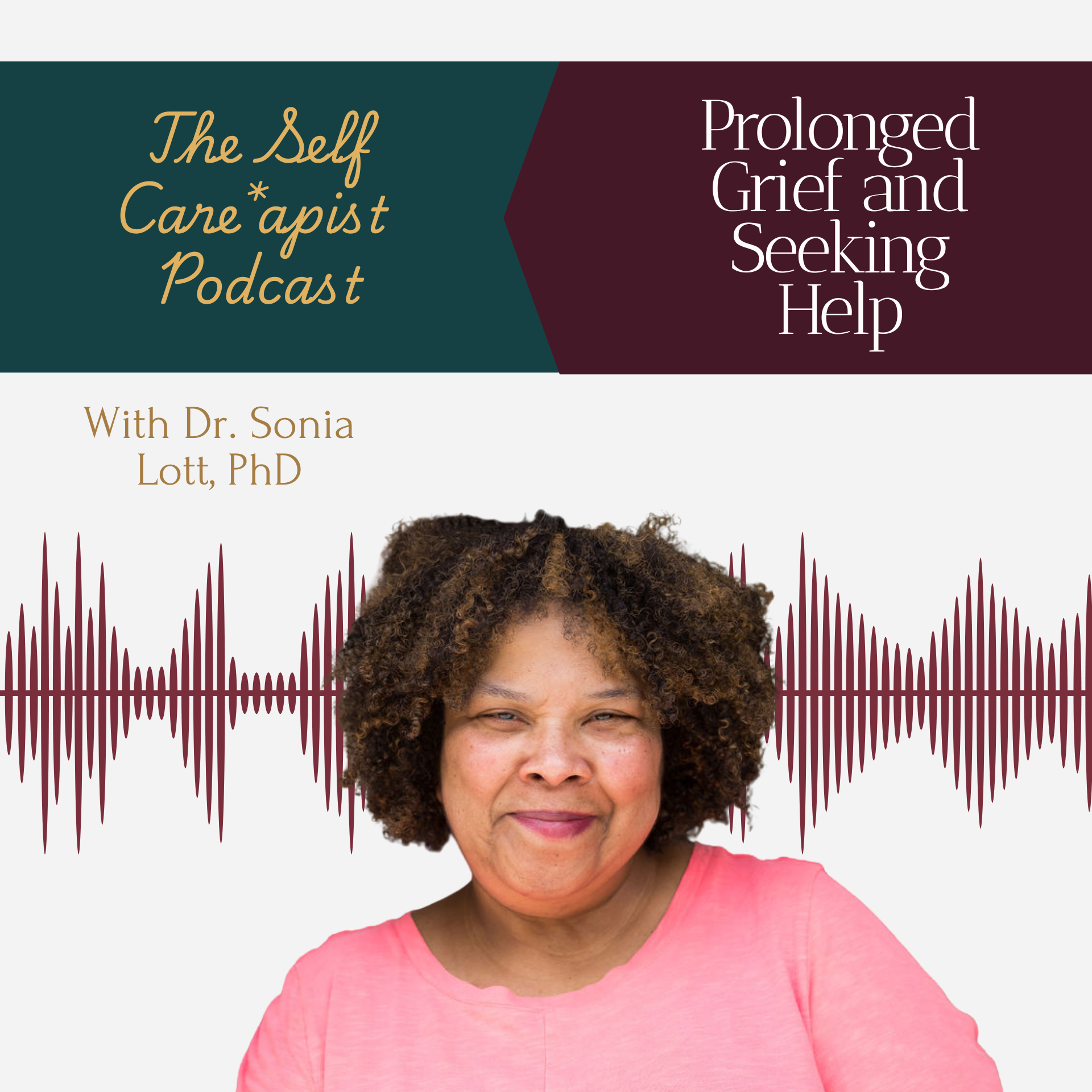When it comes to loss, grief is not a checklist—and yet many clients come to therapy wondering why they haven’t hit “acceptance” yet. In this episode of The Self Care-apist, I sit down with Dr. Sonya Lott, grief expert and co-facilitator of trainings at the Center for Prolonged Grief, to talk about Prolonged Grief Disorder (PGD), the failure of the five stages model, and why therapists need a stronger foundation in grief-specific treatment.
As a therapist who works with anxiety and trauma I see frequently the impacts of grief. This conversation is impactful for both clinicians and clients navigating complex, chronic grief.
When Grief Doesn’t Get Easier: What Is Prolonged Grief Disorder?
Dr. Lott explains that prolonged grief is not about grief taking “too long”—it’s about the intensity, persistence, and functional impairment that distinguish it from typical bereavement. Using vivid metaphors like Groundhog Day, she describes how PGD can keep people emotionally frozen in time, often misdiagnosed as depression or PTSD.
“There’s an evidence-based treatment available,” she says. “Why wouldn’t we want people to get the care they need?”
Beyond the Five Stages: A More Accurate View of Grief
One of the most powerful parts of our conversation is Dr. Lott’s critique of the five stages of grief, a model that has been widely refuted in clinical research. Instead, she urges therapists to move toward task- or milestone-based models (like those developed by Worden or Shear), which better reflect the lifelong process of adapting to loss.
Treating PGD: A Look at Prolonged Grief Therapy (PGT)
Dr. Lott introduces Prolonged Grief Therapy (PGT)—a short-term, structured therapy protocol developed by Dr. Katherine Shear that draws from CBT, attachment theory, motivational interviewing, and exposure techniques. Designed to help clients reconnect with life while honoring their loss, PGT is evidence-backed and adaptable for trauma-trained therapists.
Therapists can receive training through:
- The Center for Prolonged Grief at Columbia University (two-day intensive with manual + tools)
- Caring Connections at the University of Utah (group therapy training, free options available)
Why Therapists Need Grief Training—Now More Than Ever
Dr. Lott emphasizes the growing mental health crisis related to unprocessed grief—especially post-pandemic. With rising rates of disenfranchised grief, cumulative losses, and medical system barriers, the need for competent, trauma-informed grief therapists is urgent.
She makes a strong call to action:
“Grief work is sacred work. If the universe has whispered this is your path—follow it.”
Supporting Clients Means Supporting Ourselves
From energy work to brainspotting, Dr. Lott shares how she protects her own energy as a grief therapist. Her reflections are a reminder that healing isn’t just for our clients—it’s something we also need to actively cultivate.

+ show Comments
- Hide Comments
add a comment